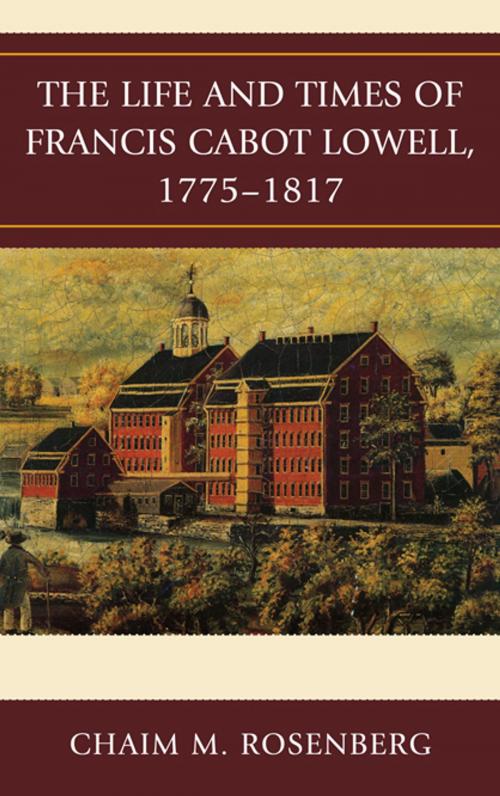The Life and Times of Francis Cabot Lowell, 1775–1817
Biography & Memoir, Business, Historical, Nonfiction, History| Author: | Chaim M. Rosenberg | ISBN: | 9780739146859 |
| Publisher: | Lexington Books | Publication: | December 16, 2010 |
| Imprint: | Lexington Books | Language: | English |
| Author: | Chaim M. Rosenberg |
| ISBN: | 9780739146859 |
| Publisher: | Lexington Books |
| Publication: | December 16, 2010 |
| Imprint: | Lexington Books |
| Language: | English |
After the Revolutionary War, despite political independence, the United States still relied on other countries for manufactured goods. Francis Cabot Lowell was one of the principal investors in building the India Wharf and the shops and warehouses close to Boston harbor. His work was instrumental in establishing domestic industry for the United States and brought the Industrial Revolution to the United States. From 1810 to the start of the War of 1812, he traveled through Great Britain, where he saw the tremendous changes caused by the Industrial Revolution, starting with cotton textiles. On his return to the United States he focused on establishing a domestic textile industry to replace imported goods. With his brother-in-law, Patrick Tracy Jackson, he built the Boston Manufacturing Company at Waltham-America's first integrated mill. With his star mechanic, Paul Moody, he developed a power loom and other machines suitable for local conditions. The Life and Times of Francis Cabot Lowell, 1775-1817 tells the story of this amazing man and the great success of the Boston Manufacturing Company, which spurred the American industrial revolution. Francis Cabot Lowell's method-a detailed investment plan, cheap raw materials and power, a motivated labor force, a sound marketing plan, and, above all, modern technology-became the standard for the American factory of the nineteenth century. When Francis Cabot Lowell died, his associates established America's first industrial city, and named it Lowell in his honor.
After the Revolutionary War, despite political independence, the United States still relied on other countries for manufactured goods. Francis Cabot Lowell was one of the principal investors in building the India Wharf and the shops and warehouses close to Boston harbor. His work was instrumental in establishing domestic industry for the United States and brought the Industrial Revolution to the United States. From 1810 to the start of the War of 1812, he traveled through Great Britain, where he saw the tremendous changes caused by the Industrial Revolution, starting with cotton textiles. On his return to the United States he focused on establishing a domestic textile industry to replace imported goods. With his brother-in-law, Patrick Tracy Jackson, he built the Boston Manufacturing Company at Waltham-America's first integrated mill. With his star mechanic, Paul Moody, he developed a power loom and other machines suitable for local conditions. The Life and Times of Francis Cabot Lowell, 1775-1817 tells the story of this amazing man and the great success of the Boston Manufacturing Company, which spurred the American industrial revolution. Francis Cabot Lowell's method-a detailed investment plan, cheap raw materials and power, a motivated labor force, a sound marketing plan, and, above all, modern technology-became the standard for the American factory of the nineteenth century. When Francis Cabot Lowell died, his associates established America's first industrial city, and named it Lowell in his honor.















